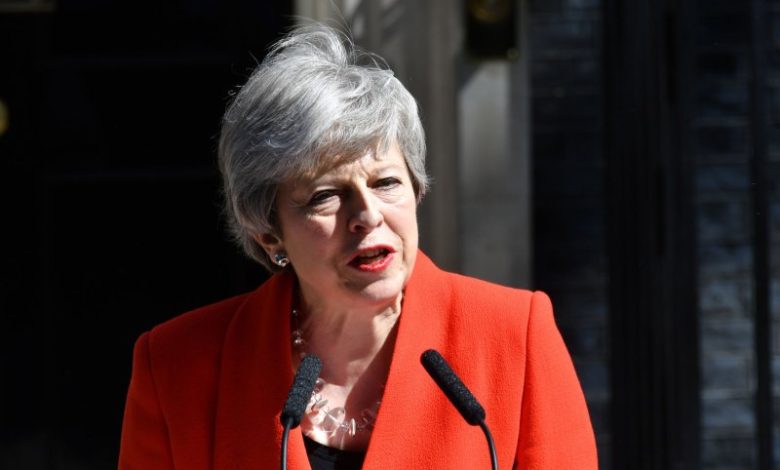Former UK Prime Minister, Theresa May to Quit Parliament

Former UK Prime Minister, Theresa May, on Friday announced that she will stand down as a member of parliament at the next general election, due to take place later this year.
The 67-year-old is the most senior member of Prime Minister Rishi Sunak’s Conservative party to announce they will not seek re-election.
The Tories have consistently trailed the main opposition Labour Party since October 2022 and are widely seen as on course to be dumped out of power after 14 years.
May has represented the constituency of Maidenhead in southeast England since 1997 and served as prime minister between 2016 and 2019 – a tumultuous period in the UK as it attempted to negotiate its departure from the European Union.
“It has been an honour and a privilege to serve everyone in the Maidenhead constituency as a member of parliament for the last 27 years,” she said in a statement to the local Maidenhead Advertiser newspaper.
“Since stepping down as prime minister I have enjoyed being a backbencher again and having more time to work for my constituents and champion causes close to my heart including most recently launching a Global Commission on Modern Slavery and Human Trafficking.
“These causes have been taking an increasing amount of my time.
“Because of this, after much careful thought and consideration, I have realised that looking ahead, I would no longer be able to do my job as an MP in the way I believe is right and my constituents deserve,” she added.
May served as interior minister between 2010 and 2016 under then-leader David Cameron.
But he resigned immediately after Britain voted to leave the EU on June 23, 2016, and May became prime minister less than a month later.
She called a general election in 2017 to try to break the logjam over the terms of Britain’s departure from the EU, but the vote ended in a hung parliament.
Unable to get her deal through parliament, her Conservative party suffered a drubbing in European elections in May 2019, leading to her resignation.
While dominated by Brexit, May was also in charge during terror attacks in London and Manchester, and when fire ripped through the Grenfell Tower block in the UK capital killing 72.




